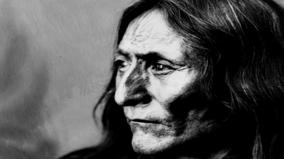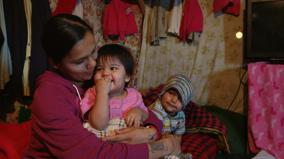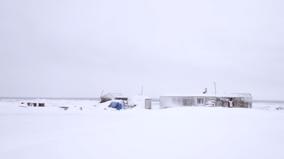New release
Coming
None
360 degrés
2008
18 min
Leaving soon
Sébastien Aubin vit dans un loft à Winnipeg et occupe un emploi de graphiste. C'est aussi un Cri francophone de la nation d'Opaskwayak, au Manitoba. Parallèlement à sa vie professionnelle, il poursuit une quête spirituelle et identitaire. Son désir de transcender le concret l'a amené à apprendre la médecine traditionnelle autochtone. Mark Thompson est guérisseur. Il a choisi de transmettre ses connaissances à Sébastien. Dans cette transmission du savoir d'une génération à l'autre, on sent le poids du temps qui s'est accéléré, phénomène incarné par Sébastien, qui appartient à la fois à la modernité et à la tradition. Ce parcours …

Details
Sébastien Aubin vit dans un loft à Winnipeg et occupe un emploi de graphiste. C'est aussi un Cri francophone de la nation d'Opaskwayak, au Manitoba. Parallèlement à sa vie professionnelle, il poursuit une quête spirituelle et identitaire. Son désir de transcender le concret l'a amené à apprendre la médecine traditionnelle autochtone.
Mark Thompson est guérisseur. Il a choisi de transmettre ses connaissances à Sébastien. Dans cette transmission du savoir d'une génération à l'autre, on sent le poids du temps qui s'est accéléré, phénomène incarné par Sébastien, qui appartient à la fois à la modernité et à la tradition. Ce parcours de 360 degrés, des valeurs du passé à celles d'aujourd'hui, prend tout son sens dans un contexte de crise environnementale.
-
participationSébastien AubinMark Thompson
-
directionCaroline Monnet
-
scriptCaroline Monnet
-
researchCaroline Monnet
-
production directionDaniel Lavoie
-
NoneGeorgette DuchainePhilippe LavaletteRay (Coco) StevensonKarine Sévigny
-
soundNorman Dugas
-
editingJosé Heppell
-
editing assistantGeorge Godwin
-
sound editingDaniel Toussaint
-
translationTheresa Fontaine
-
subtitlesClaude Dionne
-
original musicNorman Dugas
-
musicianNorman Dugas
-
interpreterRay (Coco) StevensonRhonda JamesMelanie SpenceShanley Spence
-
online editingDenis Gathelier
-
sound mixerLuc Léger
-
marketing officerJulie Arseneault
-
administratorJohanne DubucAlexandrine Torres de Figueiredo
-
administrative assistantVanessa Emam
-
technical coordinatorMicheline Faubert
-
producerAnne-Marie Rocher
-
executive producerJacques Turgeon
Education
Ages 13 to 16
Mini-lessons
School subjects
By drawing parallels between two very different societies living with the same territory, this film provides an ideal way to introduce First Nations values and customs. Introduce the idea of traditional knowledge, and discuss how it is transmitted from generation to generation.
















